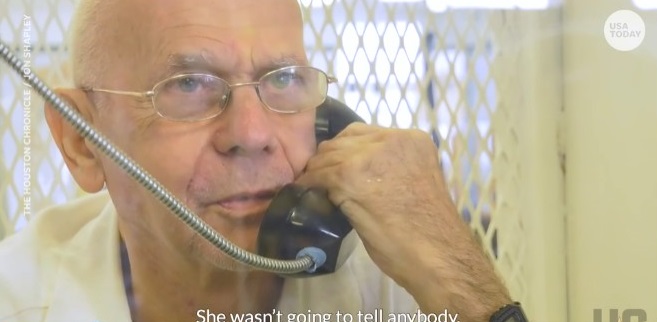[Includes video with brief interview of convicted deacon Stephen Douglas Livingston in prison, and of the mother of victim Heather Schneider.]
As a pastor who holds Southern Baptist Convention school degrees and has served on boards for SBC entities, I am mortified by what report disclosed.
A dark and difficult day has come for the Southern Baptist Convention (SBC). We knew it was coming. It needed to come. And it is devastating.
As the prophet Isaiah warned, “What will you do on the day of reckoning, when disaster comes from afar? To whom will you run for help? Where will you leave your riches?”
The Southern Baptist Convention and our convention of churches now have nowhere to turn, nowhere to run, and no place left to look but inward. This past week, Guidepost Solutions released the full report of their independent investigation of the SBC‘s executive committee and audit of the credentials committee. Their findings revealed both shameful actions and inaction regarding acts of sexual abuse, failure to report sexual abuse, and the mistreatment of victims and survivors of sexual abuse by SBC leaders at the executive, entity, local church and personal levels. The Southern Baptist Convention has released a list of alleged abusers.
Our churches and many of our leaders have failed
As a pastor who holds degrees from Southern Baptist Convention schools and has served on boards for Southern Baptist Convention entities, I am mortified by what this report has disclosed. Our churches and many of our leaders have failed to protect the most vulnerable who have been entrusted to us. We’ve also failed to create a safe environment for victims to report abuse and for survivors to share, heal and help protect future victims.
And far too often, we’ve addressed our shameful actions and attitudes with dismissive language like, “Can’t we stop dwelling on the past and just focus on preaching the Gospel?” That kind of deflection has run its course.
It’s long past time we stop placing blame on anyone but ourselves. Even though abuse or the cover-up of abuse did not happen in my particular church, I bear responsibility with my fellow SBC pastors because we are a convention of churches that boasts of being built on unity and cooperation.
When just one pastor commits or covers up abuse, all our churches and our collective witness are stained. We must all acknowledge our failures, repent and bring about the sweeping changes needed to honor the Lord, his word and the vulnerable in our care.
It’s also long past time that we open positions of leadership and influence to our faithful SBC women who have been warning us of these dangers for years and yet have continually been ignored and denied seats at the table.
Having almost exclusively male leadership in the Southern Baptist Convention has clearly failed both victims and survivors of sexual abuse. Thankfully we have many faithful women of the highest caliber in the SBC who are ready to help lead us forward at this critical time.
The truth is the disaster that has come upon the Southern Baptist Convention did not begin with the release of a report. No, our disaster began the very first moment that abuse took place on our watch and we failed in prevention, response and care.

What it means to protect Christ’s sheep
For far too long, leaders and pastors have rationalized the cover-up of sexual abuse and the disregard or even shaming of victims by claiming we were protecting Christ’s church. Such rationalizations, in fact, lack any biblical reason.
After all, if we who are called shepherds are not protecting Christ’s sheep, we are certainly not protecting his church.
In addition to taking collective action as a convention, each individual church must commit to a steadfast plan of action for improving abuse prevention, reporting and care.
At South Tulsa Baptist Church, we have taken several important steps to address abuse prevention and survivor care, including the completion of the Caring Well process and utilizing Ministry Safe, to educate our people and improve our policies and procedures according to current best practices. The programs provide a wide-ranging toolkit, including background checks, volunteer training and other resources to strengthen prevention and care.
Nonetheless, we know there is much more work to be done, and these efforts will be necessary and must continue to the highest degree.
Throughout our convention of churches, we must do everything necessary to become the protective shepherds of our children, teenagers and vulnerable adults that we’ve been called to be, following the example of the Good Shepherd himself.
Eric Costanzo is lead pastor of South Tulsa Baptist Church in Tulsa, Oklahoma, and co-author of the new book “Inalienable: How Marginalized Kingdom Voices Can Help Save the American Church.”
